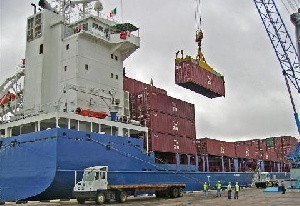There has been a major increase in imports in Ghana three months after the government reduced import duties, Ghana Union of Traders’ Association (GUTA) has said.
The government in April slashed the benchmark value for imports by 50 per cent, while the benchmark value for vehicles was also reduced by 30 per cent.
Some importers including spare parts dealers hailed the announcement. However, the Association of Ghana Industries (AGI) cried foul over the cut and predicted that it would collapse local businesses.
Announcing the cut at a town hall meeting held by the Economic Management Team, Vice President Dr Mahamudu Bawumia said the move was to ensure that higher volumes of products being imported to the sub-region were channelled through Ghana instead of its neighbours.
According to him, available data showed that traffic at the Lome harbour increased by some 300% per cent between 2013 and 2018 while Ghana saw just a little over 4% increment within the same period.
In a statement dated July 16, GUTA said, the cut had encouraged businesses to import, especially, those items that were hitherto difficult to bring into the country due to the high import duty, which make their prices uncompetitive.
“The gain from the reduction so far has enabled most businesses to transfer some benefits of the price reduction — ranging between 10% and 15% to the consumer.
“This reduction could have even been more, but for other factors like balancing the price of the new goods as against the old stock,” the statement said, adding: “Most of the gains have also manifested in stability of prices on the market, even in the midst of currency depreciation.”
Below is the full statement
Press statement on the effect of reduction in benchmark value so far
It could be recalled that as a result of persistent call from the business community for reduction of high import duty, the government in April, 2019 announced a 50% reduction in benchmark value of imported goods and 30% reduction on calculated value of vehicles.
Three months on, we have successfully worked with the Ghana Revenue Authority — Customs Division on most of the modalities involving different lines of commodities and still working on the remaining few.
After this, businesses are being encouraged to import, especially, those items that were hitherto difficult to bring into the country due to the high import duty, which make their prices uncompetitive.
The gain from the reduction so far, has enabled most businesses to transfer some benefits of the price reduction — ranging between 10% and 15% to the consumer.
This reduction could have even been more, but for other factors like balancing the price of the new goods as against the old stock.
Most of the gains have also manifested in stability of prices on the market, even in the midst of currency depreciation.
It is a fact that some category of goods have not seen reduction at all, due to the fact that the modalities involved in their values are yet to be completed.
It is also our expectation that prices will further come down, especially, if exchange rate remains stable. Bearing in mind that competition is the best determinant of prices on the market.
We are by this statement, urging all importers to share the benefits gained from the reduction with the consuming public.
Business News of Tuesday, 16 July 2019
Source: starrfm.com.gh

















